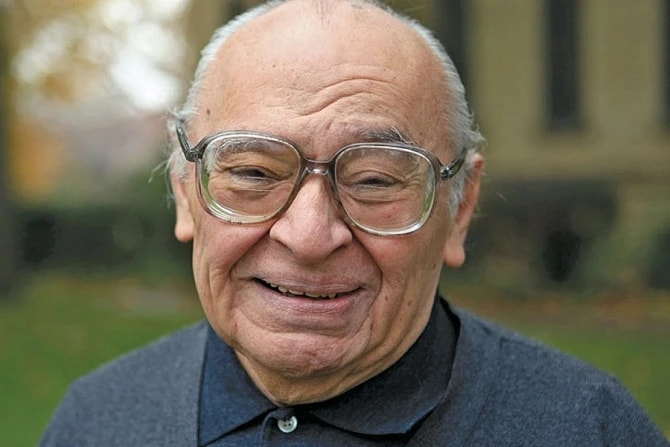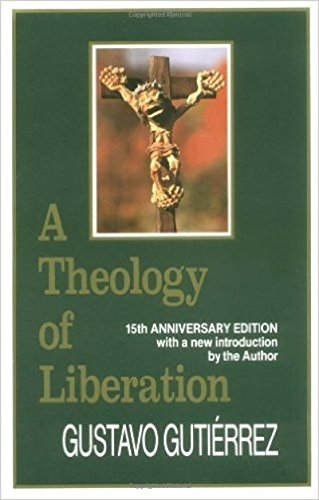Fr. Gustavo Gutiérrez, a Peruvian priest considered as the father of liberation theology, died Oct. 22 at the age of 96 in Lima, Peru. He was the author of the landmark 1971 book, A Theology of Liberation: History, Politics, and Salvation, translated in English in 1973.
Born on June 8, 1928, Gutiérrez suffered as a child with a bone infection that kept him bedridden from ages 12 to 18; prayers, reading, and reflecting helped him a lot.

He initially planned to be a psychiatrist and studied medicine and literature at the National University of San Marcos in Lima and the University of Louvain in Belgium. Sensing a call to priesthood, he studied theology and earned a doctorate at the Institut Pastoral d’Etudes Religeuses at Université Catholique in Lyon, France.
Ordained as a priest in 1959 at the age of 31, he served in Lima’s poorest neighborhoods or barriadas for more than 20 years where he became known as “the shantytown priest.” He joined the Order of Preachers (the Dominicans) in 1999.
Gutiérrez began to develop, through a series of lectures, a new approach to theology centered on social justice based in the lived experience of the poor and the oppressed. “Even though the poor remain insignificant within society,” he wrote, “they are never insignificant before God.” He stressed that “the condition of the poor is not the will of God.”
In his lectures and writings, he constantly reminded us that “poverty is a human construction; we have made these conditions.” And they must be changed.
Writings

Gutiérrez wrote his influential book on liberation theology after the Second Vatican Council, dedicated to Jose Maria Arguedas (1911-1969), a Peruvian novelist and anthropologist who portrayed vividly the lives of indigenous Andean peoples and Antonio Henrique Pereira Neto, a black Brazilian priest tortured and murdered in 1969 under Brazil’s military dictatorship.
Amidst Latin America’s inequality and dictatorships in the 1960s and beyond, liberation theology argued that the church had a duty to push for basic political and structural changes that would end poverty.
“Only authentic solidarity with the poor and a real protest against the poverty of our time can provide the concrete, vital context necessary for a theological discussion of poverty,” Gutiérrez wrote in his 1971 book. He argued that “to know God is to do justice,” and that care for the marginalized is a requirement of faith.
Orbis Books, the publisher of the English translation, noted that Gutiérrez’s work and the theology he inspired “fundamentally transformed the work of theology in North America and throughout the world.”
Some of his books include On the Side of the Poor: The Theology of Liberation, co-authored with Cardinal Gerhard Ludwig Müller, 2015; Las Casas: In Search of the Poor of Jesus Chris, 1993; and The Truth Shall Make You Free: Confrontations, 1990.
A Manila visit
The Varsitarian in its obituary mentioned that Fr. Gutiérrez delivered a lecture in University of Santo Tomas in 2002 where “he urged the Church to embrace its role in uplifting the lives of the poor by helping the struggle against unjust social structures that perpetuate poverty.” He also repeated his call for “a preferential option for the poor.”
Newly-appointed Cardinal Pablo Virgilio David in a Facebook post recounted meeting Gutiérrez by chance in 2002 when he visited “this interesting school of theology,” the Mother of Good Counsel Seminary in Pampanga, on his way to Baguio. Cardinal David was not yet a bishop and was one of the seminary’s formators.
Aside from Fr. David, Gutiérrez met three other graduates of Louvain. Introducing himself again with his complete name as Fr. Gustavo Gutiérrez from Peru, they were shocked, surprised, and delighted at meeting the liberation theologian himself in person, and warmly welcomed him.
Honors and awards
Gustavo Gutiérrez was awarded the Legion of Honor in 1993 by the French Government for his tireless work. In 1995, he became a member of the Peruvian Academy of Language. In 2002, he was inducted into the American Academy of Arts and Sciences; in 2003, he received the Principe de Asturias award for Communications and Humanities from Spain. In 2009, he was bestowed an honorary title Master of Sacred Theology, given by the Dominican Order to its most distinguished scholars. In 2014, he was awarded the Joseph B. and Toby Gittler Prize from Brandeis University, Massachusetts. In 2016, he received the Pacem in Terris Award from St. Ambrose University, Iowa.
As reported by the Catholic News Agency, when Gutiérrez turned 90 in 2018, Pope Francis thanked him “for what you have contributed to the Church and humanity through your theological service and your preferential love for the poor and discarded of society.” The Pope also thanked him for his efforts and “for your way of challenging the conscience of each person, so that no one can be indifferent faced with the drama of poverty and exclusion.”
